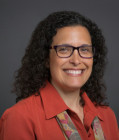Connect with the author
Decades of rigorous social science research confirm that abortion is incredibly safe. In fact, it is not being able to get a wanted abortion that causes lasting poor health and economic insecurity for pregnant people and their families. Because anti-abortion proponents cannot refute this strong body of scientific evidence, for years, they have used scientific disinformation about abortion to promote 6-week abortion bans in South Carolina. During the 2022-2023 legislative session, South Carolina House and Senate members misused valuable time and resources to pass a 6-week ban on abortion, the same ban that in January 2023 had been ruled as unconstitutional by the South Carolina Supreme Court. Now, this ban has been upheld by an all-male Supreme Court. During the Supreme Court hearings leading up to this decision, anti-abortion rhetoric once again was repeatedly used. This shows that this rhetoric moves beyond the legislature, and shapes the law.
Despite medical evidence that unequivocally demonstrates that abortion is safe–safer, in fact, than carrying a pregnancy to term–anti-abortion proponents successfully endorse false claims about the physical and psychological consequences of abortion. They use deceiving imagery and frame people who research shows are overwhelmingly secure in their abortion decisions as victims of coercion. This narrative paints a negative picture of both patients and providers and their relationship - making healthcare providers into an enemy who must not be trusted.
In reality, research shows anti-abortion medical providers in South Carolina are the ones coercing patients. Medical providers who testified in support of bill H.3020 (a 6-week abortion ban proposed in 2019) openly described situations in which they used coercive strategies to block women from accessing abortions instead of referring them to another provider.
Conditions such as inadequate income for dignified housing and food, lack of a social safety net, and the high cost of childcare – as well as a plethora of other life circumstances, make it infeasible for some people to have children or have additional children if they are already a parent. In fact, people seeking abortions are most often already parents. Thus, many people seek abortions not only to benefit themselves, but also in consideration of what’s best for their current and future children, all of whom deserve the best chance possible at health, happiness, and stability. Yet proponents of 6-week abortion bans in South Carolina used disinformation that ignores the reality that people seeking abortions are making the best decisions for themselves and their families. Even the commonly used name for 6-week bans (“heartbeat” bills) relies on such disinformation: The electrical activity of a portion of embryonic cells that will eventually form a heart may be detectable by a Doppler sonogram at that point, but fetal development is far away from having recognizable organs.
The same legislators pushing these bans often remain silent on passing legislation that would strengthen basic services- food access, and affordable housing as starting points- that enable people and their children to live healthy, dignified lives.
The judicial system, the state legislature, and state and local media, have a responsibility to call out and correct the disinformation and dangerous narratives used by anti-abortion proponents to promote abortion bans. For one, in reporting on abortion legislation, state and local media should accurately portray the harmful impacts of abortion bans and avoid advancing the false information spouted by anti-abortion proponents. Finally, litigators, legislators, advocates, and citizens opposed to this extremist legislation must recognize the anti-science approaches in which anti-abortion legislation and other discriminatory policies (e.g., anti-LGBTQ legislation) are rooted. Anti-science rhetoric must be addressed and corrected in every regard in South Carolina in order to protect pregnancy-capable people and democracy.
Victoria Lambert, PhD, is a public health researcher. For the past 3 years, she has been analyzing the anti-abortion strategies used to promote regressive abortion bans in South Carolina, with the aim of countering these harmful tactics.
Deborah Billings, PhD, is an associate professor at University of South Carolina and the University of North Carolina. She conducts research, evaluation, and programmatic work in the areas of sexual and reproductive health, rights, and justice. For the last 30 years, she has published widely on abortion access throughout the world. Since 2009, she has been active in a South Carolina Coalition that has actively worked to promote access to sexual and reproductive health and to counter the regressive strategies of anti-abortion legislators and activists.

